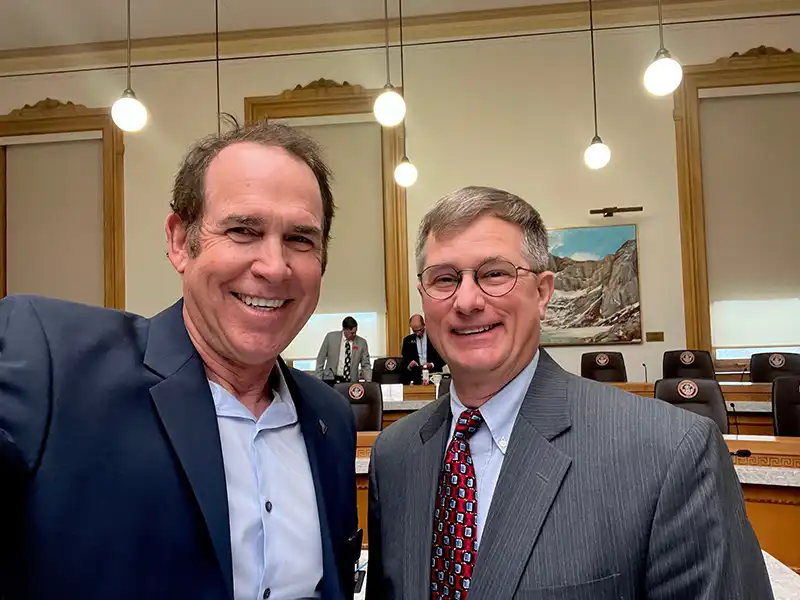Photo: John Mill (right) with Michael Gifford of AGC, before testifying at the State Capitol on February 7, 2024.
The construction industry in 2024 again faces a serious threat from proposed legislation to expand claims under the Colorado Consumer Protection Act (“CCPA”), C.R.S. § 6-1-101 et seq. House Bill 24-1014 would remove the significant public impact requirement for a CCPA claim in current law.
In 1998, the Colorado Supreme Court in Hall v. Walter, 969 P.2d 224 (Colo. 1998), held that to bring a claim under the CCPA a plaintiff must prove, among other things, that the defendant’s alleged deceptive trade practice “significantly impact[s] the public as actual or potential consumers of the defendant’s goods, services, or property.” 969 P.2d at 234. This has been the law in Colorado for over 25 years.
In practice, the CCPA sometimes is used, for example, if a dishonest developer disseminates to the public false information as to the characteristics, uses or benefits of for-sale property through a website or broadly-disseminated marketing materials.
A plaintiff who wins a CCPA claim will be awarded their attorneys’ fees and in some cases treble damages. See C.R.S. § 6-1-113(2). Thus, a CCPA claim is very attractive for plaintiffs’ lawyers and a substantial deterrent to improper conduct.
The proposed legislation, however, is a substantial threat to honest, hard-working construction professionals because if the public impact requirement is eliminated, every private dispute between Party A and Party B could potentially be turned into a CCPA claim with the threat of treble damages and attorneys’ fees. Any plaintiff who alleged that by breaching a contract the defendant engaged in conduct that was “unfair” or “unconscionable” might be awarded treble damages and attorneys’ fees.
On February 7, 2024, John Mill testified against House Bill 24-1014 during a hearing before the Judiciary Committee of the Colorado House of Representatives. John testified on behalf of the Associated General Contractors of Colorado.
The bill was passed by the House Judiciary Committee on a 7-4 vote and later was approved by the full House 41-23. In the Senate, the Senate Judiciary Committee held a hearing on the bill on March 18, 2024 but did not approve the bill.
John and others who follow legislation affecting the construction industry are cautiously optimistic that the bill will not be passed.

